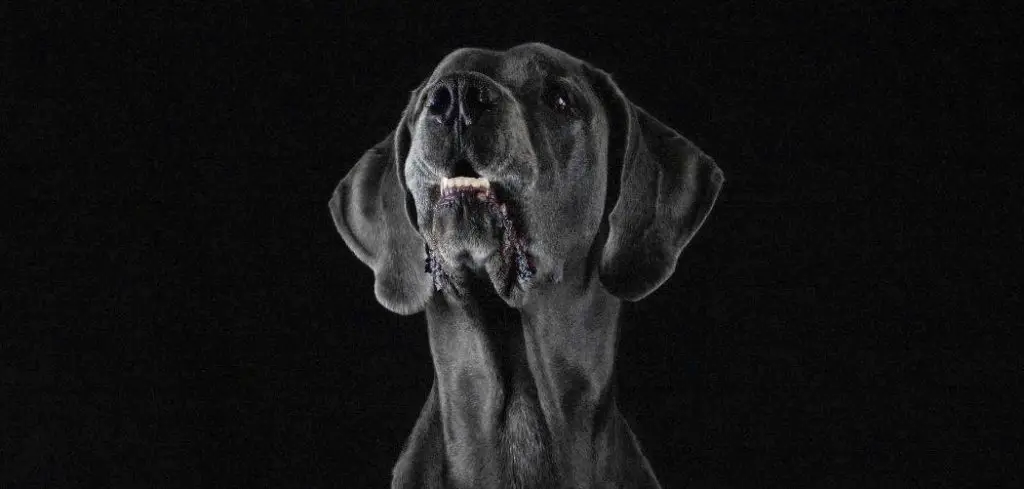When an old dog refuses to eat hard food, such as dry kibble, it often signals discomfort, dental issues, or digestive changes.
Loss of interest in hard food can lead to reduced calorie intake, weight loss, and nutrient deficiencies if not addressed promptly.
We outline the common reasons why an old dog may not be eating hard food, what you can do at home, and when to seek veterinary help.
Old Dog Not Eating Hard Food — Why It Happens
An old dog not eating hard food often happens because of dental problems such as worn, loose, or painful teeth, gum disease, or oral infections that make chewing uncomfortable.
As dogs age, their jaws and teeth can become more sensitive, and they may prefer softer textures that are easier to chew and swallow. In some cases, difficulty chewing hard food may also be linked to reduced appetite, nausea, or other underlying health issues.

Old Dog Not Eating Hard Food: Common Causes
Dental Disease
Dental problems, including tooth decay, gingivitis, or abscesses, make chewing hard kibble painful.
Dogs may drop food, chew slowly, or avoid meals entirely. Look for signs like bad breath, drooling, pawing at the mouth, or visible tartar. Veterinary dental care, such as cleaning or extractions, often resolves the issue.
Read more: Old Dog Not Eating Dog Food (Here’s Why)
Jaw or Mouth Pain
Pain from arthritis, TMJ issues, or oral injuries can reduce the ability to chew hard food comfortably.
Dogs may eat softer foods but avoid kibble. Signs include reluctance to eat, chewing on one side, or vocalizing during feeding. Veterinary evaluation for pain management or oral health intervention can help.
Digestive Sensitivities
Some older dogs develop digestive sensitivities that make hard food harder to tolerate.
Dogs may refuse kibble due to nausea, bloating, or mild stomach upset. Switching to soft, easily digestible food temporarily can maintain nutrition while monitoring for ongoing issues.
Taste or Smell Changes
Senior dogs may experience changes in taste or smell, reducing the appeal of hard food.
Dogs may still eat wet food or treats while avoiding dry kibble. Warming the food slightly or mixing with soft foods can improve palatability.
Arthritis or Mobility Issues
Arthritis or joint pain can make it difficult to bend down to eat from a standard bowl.
Dogs may avoid hard food because it requires effort to reach or chew. Raised feeders or soft food alternatives can help encourage eating while minimizing discomfort.
Organ Dysfunction
Kidney, liver, or pancreatic issues may reduce appetite or tolerance for hard food.
Dogs may show subtle signs such as vomiting, diarrhea, or lethargy. Veterinary assessment can help manage organ health while adjusting diet to maintain calorie intake.
What to Do If Your Old Dog Is Not Eating Hard Food
Offer soft, palatable alternatives such as canned food, soaked kibble, or homemade meals.
Warm the food slightly to enhance aroma and appeal. Consider raised feeders to reduce strain on joints while eating.
Monitor weight, stool, and overall behavior, and document changes to assist your veterinarian in identifying underlying causes.
When to Call or Visit Your Vet
Seek veterinary attention if your dog:
Refuses all meals for more than 24–48 hours
Shows vomiting, diarrhea, weight loss, or lethargy
Exhibits oral discomfort, drooling, or pawing at the mouth
Has difficulty chewing or swallowing
Veterinary evaluation ensures proper diagnosis of dental disease, digestive issues, organ dysfunction, or other conditions, and guides safe dietary adjustments.
Read more: Old Dog Not Eating (Causes and what to do)
Key Takeaway
When an old dog is not eating hard food, dental pain, digestive discomfort, or other health issues may be involved.
Home care includes offering soft or soaked food, warming meals, using raised feeders, and monitoring behavior and weight. Persistent refusal to eat hard food requires veterinary evaluation to maintain nutrition, comfort, and overall health in your senior dog.
